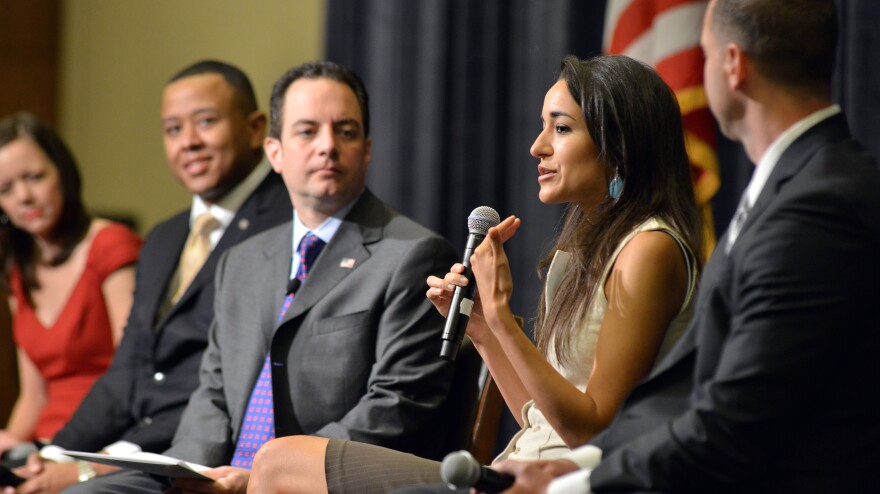They talked about the Hillary Clinton documentary and miniseries. They talked about how well they're doing raising money. They talked about how they're building a state-of-the-art data mining and voter turnout operation.
Here's what the Republican National Committee members didn't talk about at their summer meeting, but, rather, talked around: their existential need to broaden their base of support, and how so far their traditional base is not exactly embracing the idea.
Perhaps that's understandable. This meeting of the group, any meeting, is at least in part a pep rally for the party faithful, to provide some joy to boost the troops' morale. And the anti-news media resolution certainly provided that.
"We said to the media with a united voice that a network that spends millions of dollars to spotlight Hillary Clinton is a network with an obvious bias, and that's a network that won't be hosting a single Republican primary debate," Chairman Reince Priebus promised. The sustained standing ovation he got at the gathering at the Westin Boston Waterfront hotel was the most exuberant reception of the entire meeting.
(NBC News says it has nothing to do with the entertainment division that's producing its Clinton series. CNN says it's disappointed the GOP didn't withhold judgment until after it had seen the film. In any event, Clinton — the former first lady and secretary of state — has not even announced whether she is running for president.)
In contrast, Priebus won tepid applause after backing into a defense of the party's "Growth and Opportunity" project to bring in more Latinos, African-Americans, young people, unmarried women — pretty much all the groups that overwhelmingly voted Democratic last November. He refuted the idea that reaching out to these groups is tantamount to compromising the party's core values in order to win.
"To those who make those accusations, we don't have time for your divisiveness, either — any more than we have time for the media's games," Priebus said. "If you only want to be a voice of dissent, or if you just want to be angry — if you don't want to be problem solver, then you're putting yourself ahead of the movement."
The defensive tone is probably understandable, given the position Priebus finds himself in. The party establishment has concluded that an electoral strategy relying on overwhelming support from white voters to make up for weak performance with minorities is no longer useful.
Yet these leaders are getting strong resistance from much of their own white, disproportionately southern base of support — particularly because the outreach to Latinos has become entwined with the push for an immigration overhaul. The GOP establishment is having to counter a "missing white voters" theory that posits that minority outreach is not necessary (at least not in the next few election cycles) if the party can instead bring disaffected whites back to the polls.
Publicly, Priebus and others at the three-day meeting say the project, while a long-term endeavor, is on track. They showcase their program to train more Republican women candidates. They have started a "GOP Rising Stars" to highlight non-traditional Republicans.
Privately, other Republicans are less sanguine — and already wondering if it will take another White House loss in 2016 for the party base to accept what they are already certain is demographic inevitability.
Copyright 2021 NPR. To see more, visit https://www.npr.org.


